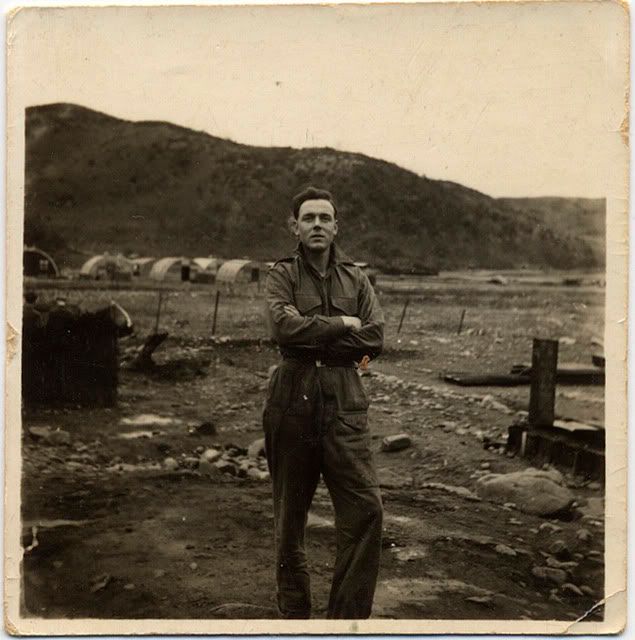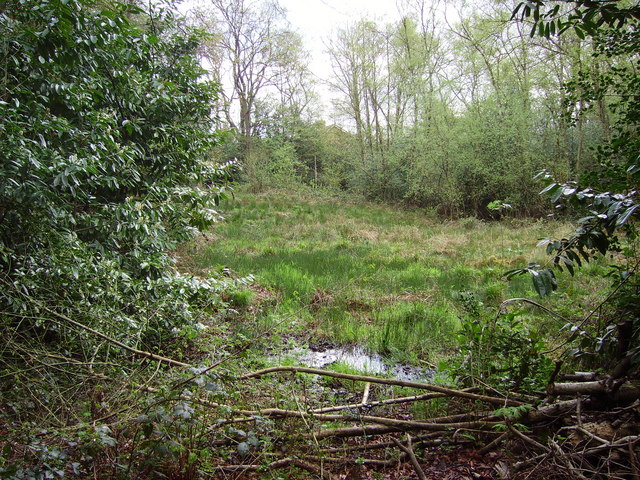
One of own my collected photographs, Unknown Soldier.
My family has a long history of being in the Army or Navy, and with my Grandparents both having great involvement in WW2, I have always been fascinated with the 1930s and 1940s. I am currently in the process of researching my families involvement, and my local war history, as I am considering a project based upon these experiences.
Living in Aldershot all my life (despite my constant moaning about it) has also provided me with some great military history and knowledge. During the recent years, it has become a ghost town, but in the 1920s-40's it was a thriving military town, with American, Canadian and Dutch soldiers all being stationed at the barracks.

Soldiers arriving at Aldershot Station, 1942.
During my time at Farnham College, we took a trip to the Western Front Battlefields, where we visited the graves of boys who attended the Farnham Boys Grammer school. One was only 15 when he died- Rifleman Valentine Joe Strudwick from Dorking in Surrey. He was one of the youngest British casualties of the Great War. The names of 5 more boys from Farnham could be found on the monument of The Somme Battlefields - M. Heywood, T.Hine, M. Hopwood, W. Jones and S. Spencer.
Continuing these local findings, there are 2 large bomb craters in Rowhill Copse (opposite my house) that were left from an air raid in July 1940. They can still be clearly seen today, and were recently featured on Channel 4's "Blitz Street" program.

Rowhill copse, Diane Sambrook
The first bomb fell on Surrey on the 30 June, 1940. From 30 June to 31 December 1940, 5,668 high explosive bombs were dropped on the Surrey area.
I plan to take a trip to the Aldershot Military Museum very soon, to go through their photographic archives. My Grandad's efforts in Burma are also featured in the Museum collection, so i feel it would definitely be a beneficial visit. My Grandparents never really talked about their experiences, and this seems to be common behaviour. How much do we really know? However, the few stories I did hear, have always stuck with me. They are so frightening, I can barely believe them to be real.
During our Farnham College Battlefields tour, one visit I vividly remember was to the Hindenburg Line, where the war poet Siegfried Sassoon managed a single handed capture of a trench. We learned this 'mission' was actually a suicide attempt. His own depression and despair provoked such manic courage, and his fearless nature gave him the nickname "Mad Jack" for his near-suicidal exploits.
Sassoon’s use of bitter sarcasm and graphic imagery make him one of the most moving and provocative of all the war poets, read "The Attack". This poem captures the terror of men caught in a mechanised war. Sassoon doesn't hold back on the horrifying details.

Sasoon's trench on the Hindenburg Line
Despite his best efforts, he survived the war, and made it back home. On his gravestone reads a prose from his great friend, and fellow poet, Wilfred Owen "My subject is War, and the pity of War. The Poetry is in the pity."
Wilfred Owen sought out Sassoon to teach him how to be a better poet, as he didn't have the self confidence to publish his poetry alone. Hard to believe such doubt. It only takes one read of "Dulce et Decorum est" to really put things into perspective.
For Rememberance day, Cambridge University Library is displaying their collection of Sasson's archive.

(Siegfried Sassoon's notebooks)
The Dug-out
Why do you lie with your legs ungainly huddled,
And one arm bent across your sullen, cold,
Exhausted face? It hurts my heart to watch you,
Deep-shadowed from the candle's guttering gold;
And you wonder why I shake you by the shoulder
Drowsy, you mumble and sigh and turn your head...
You are too young to fall asleep for ever;
And when you sleep you remind me of the dead
Sassoon became a pacifist, and upon the conclusion of his convalescence in the summer of 1917, he refused to return to war, penning a widely-published open letter, entitled “Finished with the War: A Soldier’s Declaration,” to his commanding officer. The letter concluded:
“I have seen and endured the sufferings of the troops and I can no longer be a party to prolonging these sufferings for ends which I believe to be evil and unjust. I am not protesting against the conduct of the war, but against the political errors and insincerities for which the fighting men are being sacrificed.
On behalf of those who are suffering now, I make this protest against the deception which is being practised upon them; also I believe it may help to destroy the callous complacency with which the majority of those at home regard the continuance of agonies which they do not share and which they have not enough imagination to realise.”
If you are interested in reading more about Sassoon, Wilfred Owen and the lives of such other Great War Poets, i suggest 'Regeneration' by Pat Barker. Also, my favourite book of all time "Birdsong" by Sebastian Faulks.
I am continuing my research of this era, this is only a small insight, as i thought the timing was appropriate. This week, I hope you've taken a moment to remember those who have died in wars throughout history, and those who are out there fighting right now.
To finish, Phillip Larkin's "MCMXIV", one poem that captures the aftermath of such horror, the wondering of how can we ever recover from such devastation?
Those long uneven lines
Standing as patiently
As if they were stretched outside
The Oval or Villa Park,
The crowns of hats, the sun
On moustached archaic faces
Grinning as if it were all
An August Bank Holiday lark;
And the shut shops, the bleached
Established names on the sunblinds,
The farthings and sovereigns,
And dark-clothed children at play
Called after kings and queens,
The tin advertisements
For cocoa and twist, and the pubs
Wide open all day;
And the countryside not caring
The place-names all hazed over
With flowering grasses, and fields
Shadowing Domesday lines
Under wheats' restless silence;
The differently-dressed servants
With tiny rooms in huge houses,
The dust behind limousines;
Never such innocence,
Never before or since,
As changed itself to past
Without a word--the men
Leaving the gardens tidy,
The thousands of marriages
Lasting a little while longer:
Never such innocence again.
Thanks for reading.





3 comments :
great photos :)
natalieoffduty.blogspot.com
What a fab post! And info on Surrey. I have not been living here that long, so have not looked into local history all that much - your post has prompted me to change that.
Also - thanks for following my humble offering :)
Thanks both of you girls! :)
LandGirl1980- I'm so glad it's helped tell you a little about Surrey! there certainly is a lot to learn about it under the surface, hopefully my new research project will explain in more detail! AND, i love your blog! It's all my favourite things!!
Post a Comment